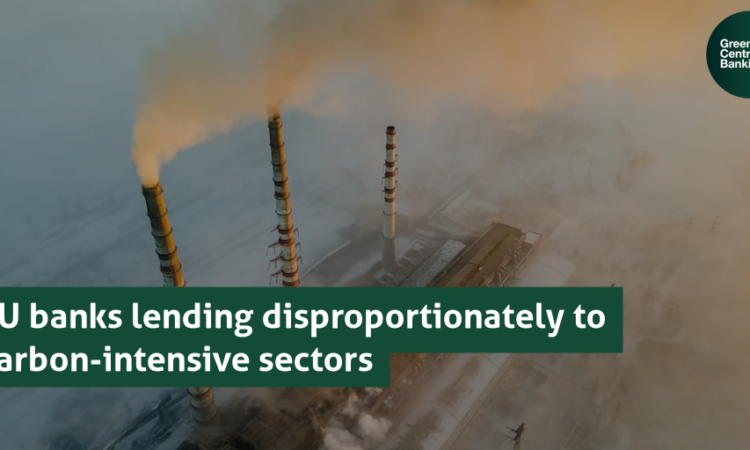
Banks are lending disproportionately to sectors with high emissions, a joint report from the European Central Bank (ECB) and European Systemic Risk Board has found. It also states that the European Union should adopt macroprudential policies aimed at reducing banks’ climate risk exposure.
“Banks will be key in managing and reducing climate-related financial stability risks,” even as their books lean heavily towards sectors and households that have a high climate risk exposure, the report says.
EU banks have taken few steps to decrease their carbon footprint and remain highly exposed to carbon emissions in their lending portfolios. More than 60% of banks’ interest income comes from firms in carbon-intensive sectors. Meanwhile, the share of high-emitting sectors in bank lending is 75% more than its share in economic activity, while 60-80% of mortgage lending is to high-emitting households.
The research reveals that the banking sector could face substantial risks from climate change including nature risks. Besides risks from the transition to a green economy, there are also physical risks from lending to sectors affected by extreme weather events. Around 75% of bank loans and over 30% of insurer investments are in sectors with a high dependence on at least one ecosystem.
The report also found that climate risk is not distributed evenly but concentrated in a subset of banks, which could lead to a 60% increase in lending portfolio losses in the event of a disorderly transition.
“The lack of information on clients’ transition plans prevents a proper aggregate assessment of how these exposures are being managed,” the report says.
The researchers suggest that steps could be taken to contain or even reduce systemic risk, such as dedicated capital buffers, supervisory monitoring or using the systemic risk buffer. At the same time, steps should be made to address the role of non-banks in financial stability, such as enhancing disclosures and addressing potential greenwashing risks as well as the insurance protection gap.
“Close coordination of policy responses across countries and sectors, especially within the EU, will be essential if we are to efficiently address systemic climate risks, by limiting the risk spillovers, uncertainty and distortions that might result from a more fragmented approach,” the report says.
A similar report from the ECB found that large banks tend to overplay their net-zero commitments, which could increase litigation risk. The ECB has increased its efforts over the last few years to address climate change, most recently threatening to fine banks that do not address their climate risk shortcomings.
This page was last updated January 8, 2024





